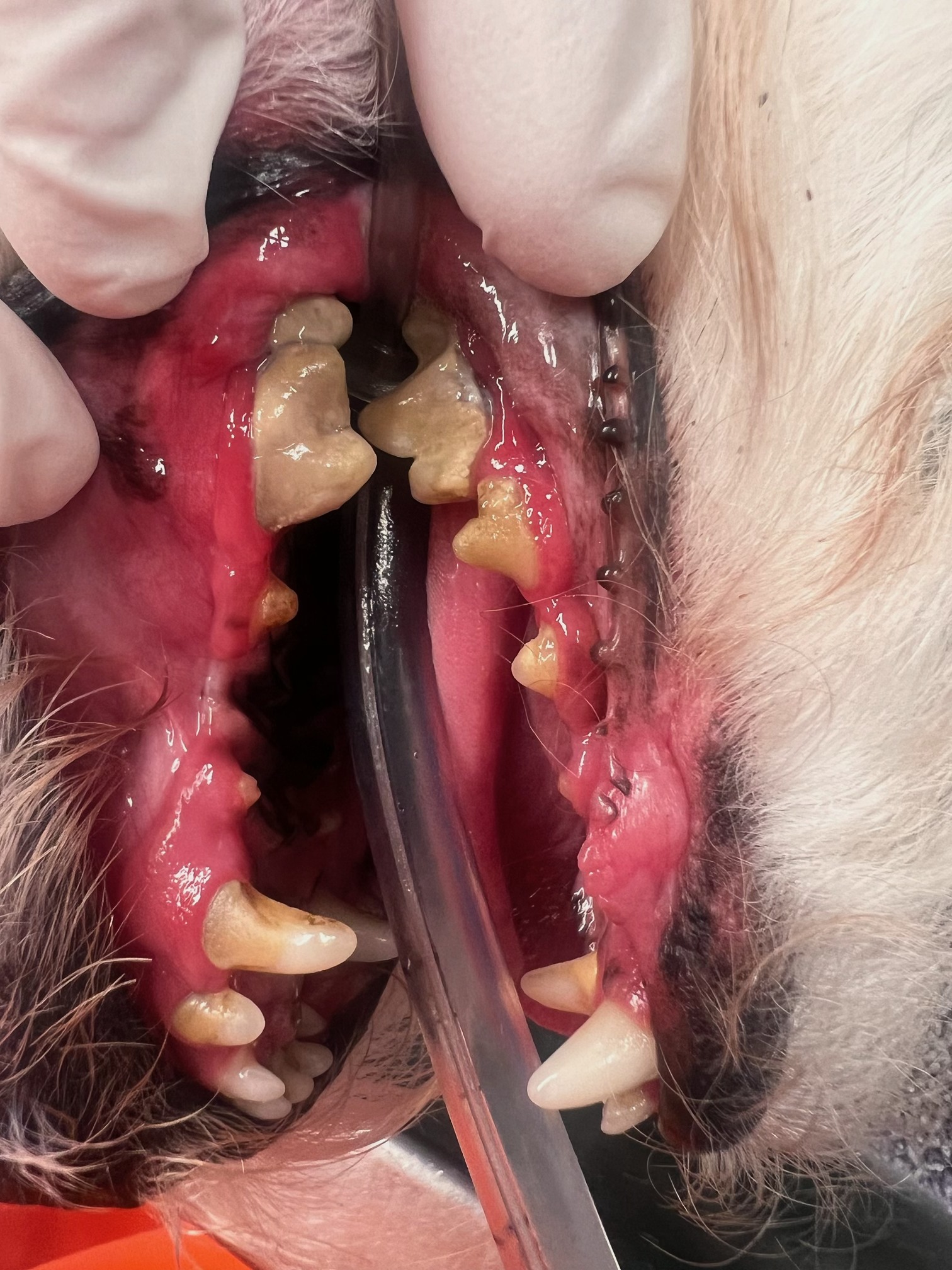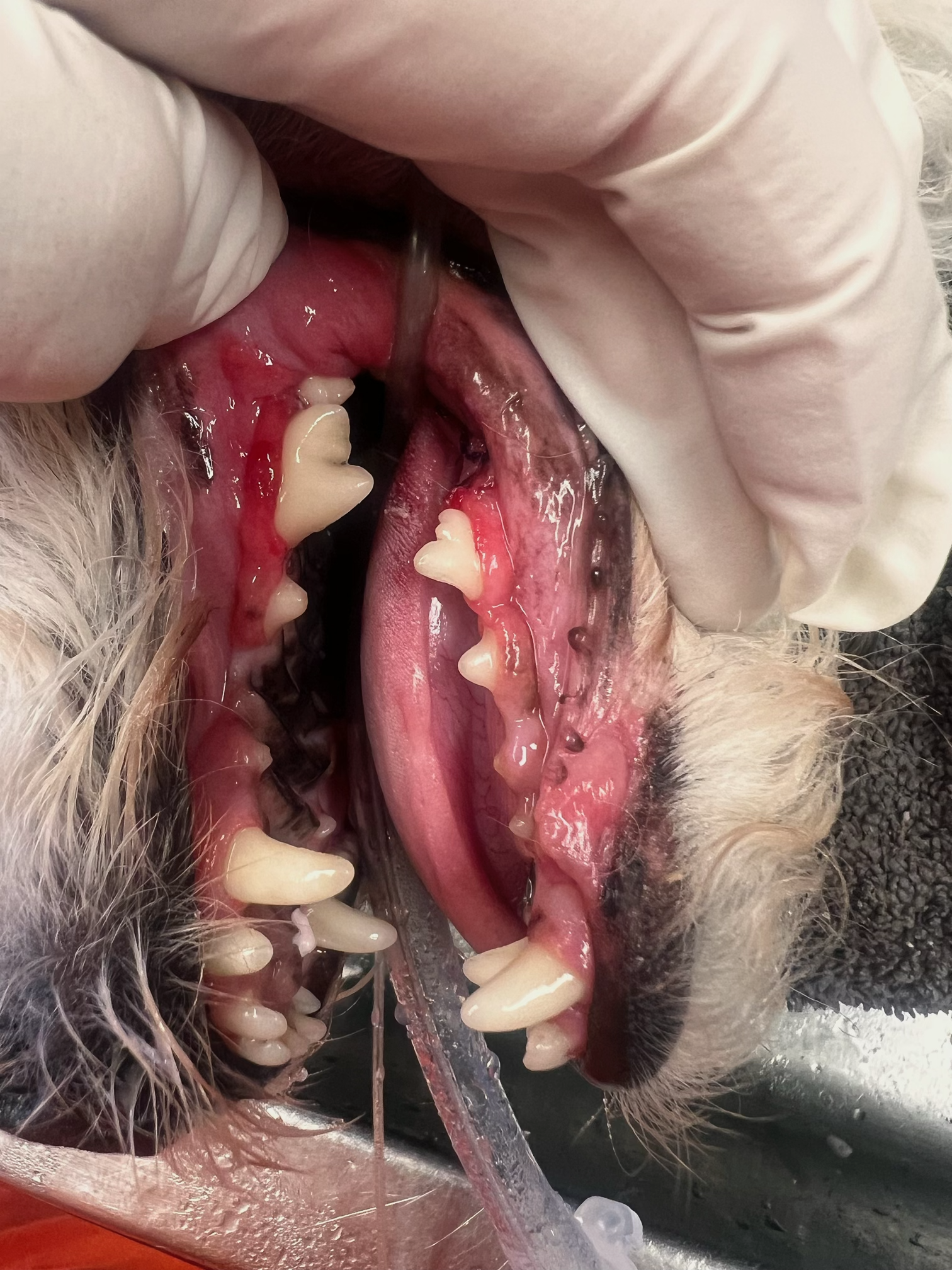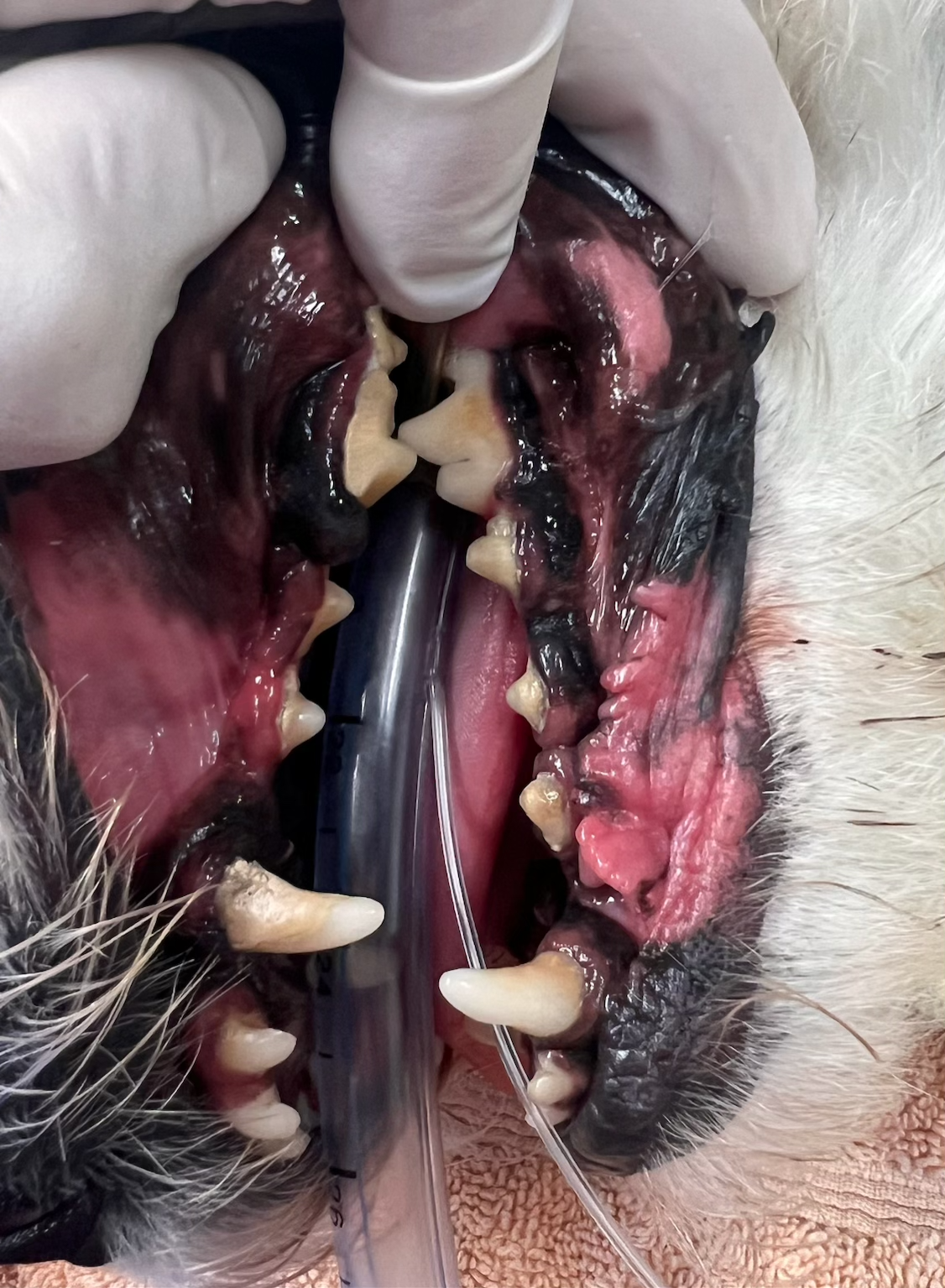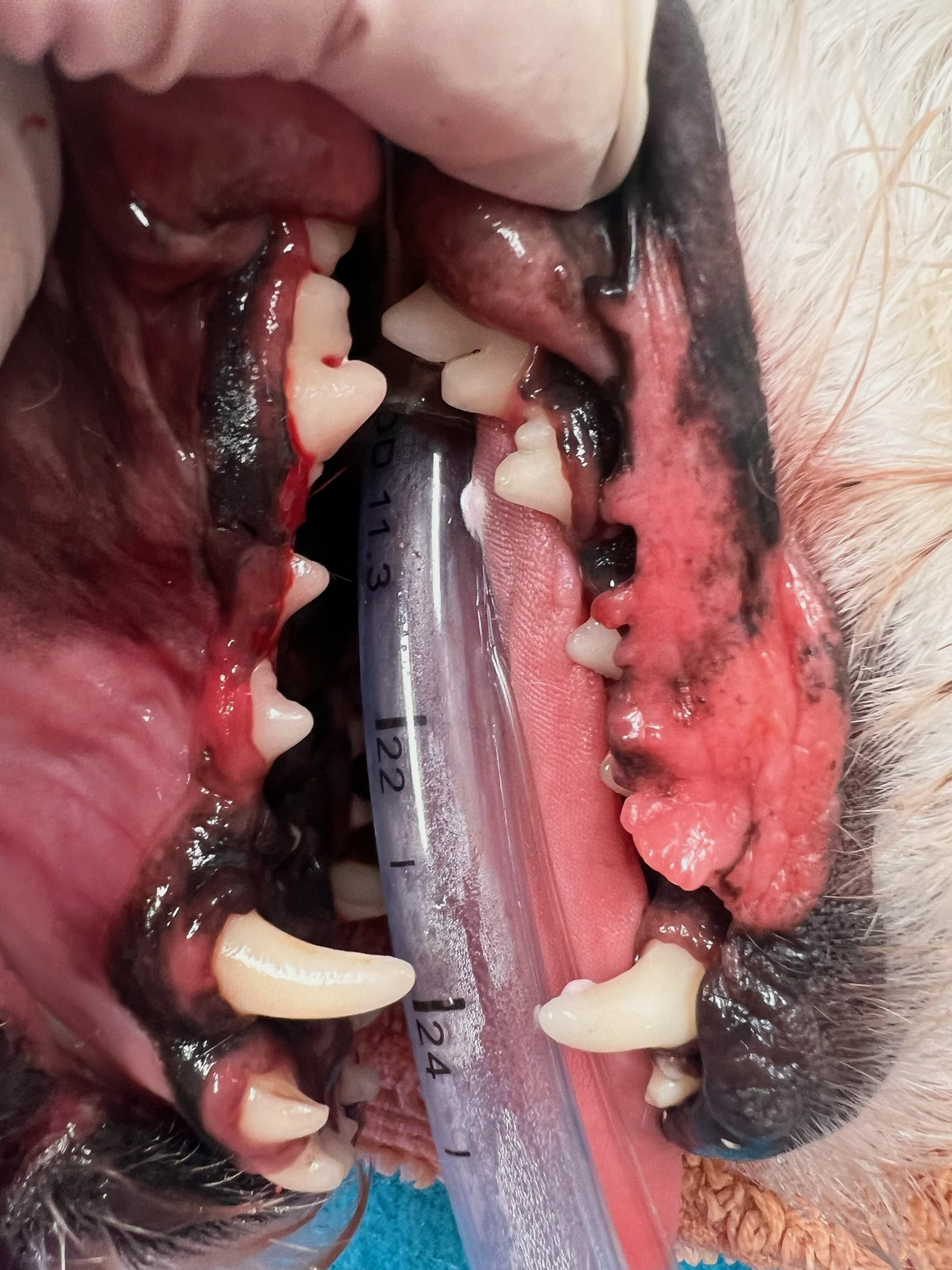A healthy pet has a healthy mouth. We are happy to help keep your pet’s mouth healthy with both dental treatments and suggestions for at-home dental care.
Taking care of your furry family member’s teeth is about more than avoiding bad breath. Consequences of unintended dental disease can include pain and difficulty eating, infection and inflammation of the gums and jawbone, tooth loss, and risk to the heart valves, kidneys, and liver due to excessive numbers of bacteria living in the mouth.
What Does Dental Treatment Involve?
Just like you, a large part of your pet’s dental disease is occurring under the gumline. Proper dental cleaning means that treatment must include scaling in the gingival pockets, not just “cracking off” the visible tartar. Because most pets will not allow this while they are awake, dental treatments usually require anesthesia. The American Veterinary Dental College (ADVC) recommends dental cleanings that include scaling under the gumline, followed by polishing to prevent tooth enamel damage.
While your pet’s teeth are being cleaned with a safe and modern ultrasonic scaler, our Registered Veterinary Technicians use the latest technology to monitor your pet under anesthesia. A dental examination checks for any periodontal pockets, mobile teeth, cracked teeth or chipped crowns. In most cases, digital intraoral radiographs will be taken to look for any hidden dental disease. Cleaning and examination is followed by polishing, to create a smooth protective layer that provides more resistance to plaque and tartar buildup. Our veterinarians have training in more advanced dental techniques as well, and can do dental sealants, fillings, and extractions if needed.
To show you how much difference a dental can truly make, every client receives a Day at the Dentist report card with before and after photos of your pet’s teeth!

Before

After

Before

After
At-Home Prevention and Care
After your pet’s teeth are sparkly clean, we want to keep it that way. We have a wide range of products such as toothbrushes and toothpaste, mouth sprays and rinses, and dental chew treats that can help slow down tartar deposits. Ask our trained staff – they would be happy to help you design a home dental care plan just for you and your animal companion.
Click the following links to see videos on how to brush your dog and cat’s teeth.
